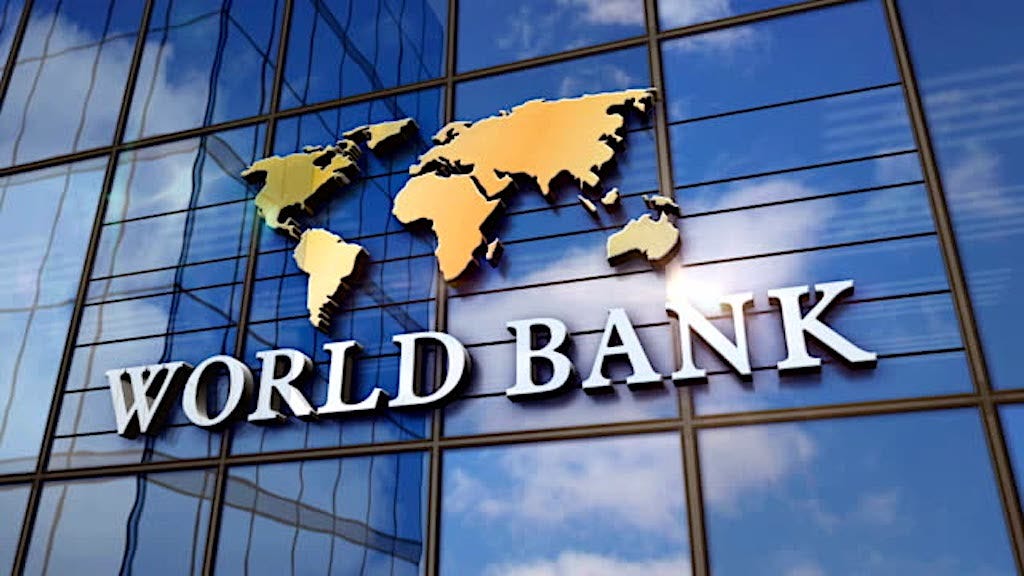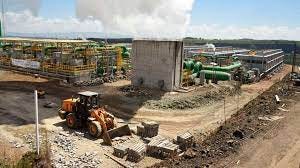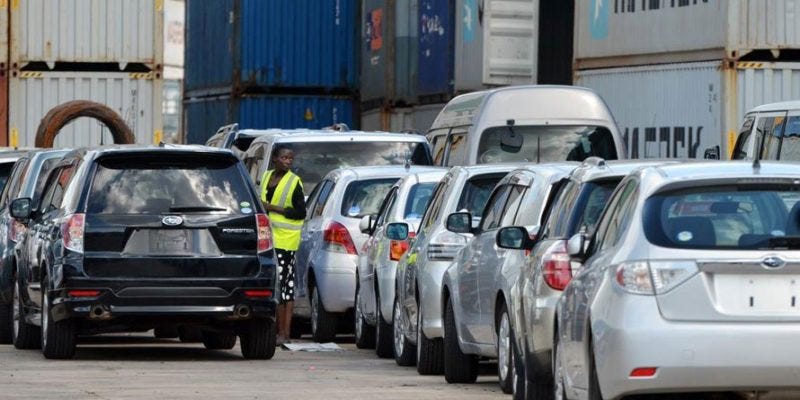Kenya Secures $500 Million Syndicated Loan to Offset External Debt Repayments
Kenya has successfully secured a syndicated loan worth Sh70.4 billion ($500 million) from a consortium of international lenders. The loan will effectively roll over external debt repayments of a similar amount that were due this month, providing relief to the Central Bank of Kenya (CBK) and safeguarding its foreign exchange reserves. The loan is being obtained from various financial institutions, including Citi Group from the United States, Standard Chartered Bank from the UK, Africa Export-Import Bank (Afrexim Bank), and South African lenders Standard Bank and Rand Merchant Bank (RMB). The funds will finance approved development projects in the country's just-ended financial year.
While the lenders have announced the loan to be divided into two tranches spanning three and five years, they have not disclosed the specific allocation or the interest terms for each tranche. Typically, these external loans are sold to the CBK in exchange for Kenyan shillings, enabling the funds to be injected into the local economy. Consequently, this is a crucial foreign exchange source for the country's monetary regulator.
The allocation of the syndicated loan proceeds to the 2022/23 budget indicates that a portion of the funds will be utilized to address the government's outstanding bills, which amounted to Sh537.2 billion as of March 2023. This move will assist in settling these due obligations and alleviate financial pressure on the government, contributing to improved economic stability in Kenya.
Click here to read the full article.
ECONOMY
World Bank Warns Kenyan Government of Persistent Crowding Out of Private Sector in Local Debt Market
The World Bank has issued a cautionary statement to the Kenyan government regarding the persistent crowding out of the private sector in the local debt market, which is largely attributed to excessive borrowing. The multilateral lender has observed that commercial banks have not been able to provide optimal support for investments as the Treasury competes with households and businesses for credit from these banks.
Despite a recent rebound in private sector credit growth, driven by the removal of interest controls and the renewed interest of banks in higher risk-adjusted returns, the World Bank's warning underscores the ongoing challenges faced by the banking sector in facilitating investments and economic activity. According to a recent report, the growth of credit is lagging behind the growth of the country's GDP, indicating the continued struggle of banks in playing a robust role in supporting the economy. In fact, the report highlights that banking sector credit to the private sector reached its peak in 2015.
This change in dynamics has occurred against the backdrop of increased demand by the government for domestic financing of the budget deficit, along with the interest rate cap that was in effect from 2016 to 2018. The combination of these factors has created a situation where the private sector is being crowded out, hampering its ability to access credit for investment and growth. The World Bank's caution serves as a reminder to the Kenyan government of the importance of balancing its borrowing needs with the imperative of promoting a healthy and vibrant private sector.
Click here to read the full article
COMPANIES
1. Energy Company OrPower 4 plans an expansion project in Kenya
US-owned energy company OrPower 4 is embarking on an expansion project to enhance the generation capacity of its geothermal wells in order to bolster electricity sales. Currently, the independent power producer generates 120 megawatts from its four geothermal wells situated in the Olkaria Three Complex. However, the company has not disclosed the expected increase in capacity that will result from this project, which is scheduled for completion by the end of this year.
OrPower, the third-largest electricity supplier to Kenya Power, has experienced a decline in its electricity supplies over the years. This decline has prompted the company to undertake this expansion project in an effort to boost its generation capacity. Additionally, OrPower has been grappling with increased delays in payments for its electricity sales. In its latest annual report, the company stated, "We are performing a drilling campaign and expect to increase plant capacity in 2023."
The decision to upgrade the capacity of its geothermal plants is driven by Kenya's commitment to transition fully to clean energy sources by 2030. The country aims to achieve this transition by tapping into renewable energy sources such as geothermal, solar, and wind power. With this expansion project, OrPower aims to contribute to Kenya's clean energy goals and strengthen its position as a key player in the country's electricity supply sector.
Click here to read the full article.
2. South African Engineering Consultancy Zutari Expands Presence in Kenya for Government Infrastructure Projects
South African engineering consultancy Zutari has made its entry into Kenya with the goal of expanding its footprint in the East African nation through participation in government infrastructural initiatives. The firm, specializing in infrastructure advisory services, has successfully obtained registration licenses and has registered with the Engineers Board of Kenya, focusing on civil and electrical engineering disciplines.
Zutari brings with it a wealth of experience, having already contributed to notable projects in Kenya, including the renowned Two Rivers Mall and the Kenya Water Security and Climate Resilience Project. The timing of the consultancy's launch aligns with the anticipated surge in infrastructure development efforts by the Kenya Kwanza administration. A substantial budget allocation of Sh244.9 billion has been assigned to support the construction, rehabilitation, and maintenance of roads and bridges. Additionally, an allocation of Sh43.3 billion has been earmarked for water and sewerage infrastructure development.
With these opportunities on the horizon, Zutari has expressed its intention to engage with key government agencies such as the Kenya National Highways Agency (KeNHA), Kenya Rural Roads Authority (KeRRA), and Kenya Urban Roads Authority (Kura). By capitalizing on its expertise and established track record, Zutari aims to play a vital role in driving Kenya's infrastructure agenda forward, further bolstering the country's development and economic growth.
Click here to read the full article
CAPITAL MARKETS
Government Considers Allowing Water Service Providers to Float Bond as Second Attempt to Fund Water Infrastructure Development
According to documents obtained by Business Daily, the Kenyan government is contemplating granting water service providers (WSPs) the opportunity to issue a bond in the local market. This comes as a second attempt following the unsuccessful Kenya Pooled Water Fund Initiative from 2018 to 2022. If approved, Kenyans should expect an increase in water tariffs to cover the debt repayments. Presently, WSPs generate Sh21.8 billion in tariff revenue, but a significant portion of Sh11.6 billion is consumed by staff expenses.
The Ministry of Water, Sanitation, and Irrigation acknowledges that the previous water fund did not achieve its goal of issuing a bond to finance local water and sanitation infrastructure. However, it highlighted that the initiative demonstrated the willingness of capital market investors to invest in well-structured water sector projects. Aligned with the ministry's strategic plan for 2018-2022, which aimed to mobilize Sh10 billion from local bond markets, the government is now initiating discussions with stakeholders, including the Capital Markets Authority, to determine the way forward.
One of the key challenges in this endeavor is how to ensure that the water debt does not burden the government's balance sheet and add to Kenya's public debt. To address this concern, the adoption of cost-reflective water tariffs has been identified as the most viable option. By implementing tariffs that accurately reflect the actual cost of water services, the government hopes to mitigate the risk of requiring taxpayer-funded guarantees for bonds issued by water service providers.
Overall, the government's consideration of allowing WSPs to float a bond signifies a renewed effort to secure funding for the development of local water and sanitation infrastructure.
Click here to read the full article
IMPORT
Kenya Approves 35% Import Duty Hike on Cars, Squeezing Car Buyers Amid Currency Depreciation
Kenya's car buyers are grappling with the impact of a 35 percent import duty imposed after the approval of an application by the East African Community (EAC). The EAC Council of Ministers recently gave the green light to Kenya's request to raise duty on motor vehicles under the common external tariff, adding to the challenges faced by an industry already affected by a depreciating currency.
Previously set at 25 percent, the import duty increase will result in significant price hikes for imported cars in Kenya. This includes vehicles with a capacity of 10 or more passengers, station wagons, racing cars, and those used for transporting goods, among others. As a consequence, vehicles imported into Kenya will now carry a higher price tag compared to neighboring countries such as Uganda and Rwanda.
The rise in customs duty on imported cars is projected to raise the cost of importing vehicles by approximately 14 percent. This development, coupled with recent increases in petrol prices, may prompt consumers to consider alternative options such as green mobility solutions, according to Robert Waruiru, the managing partner of Ichiban Tax and Business Advisory and chairperson of the Institute of Certified Public Accountants of Kenya Public Finance Committee. While local vehicle assemblers might benefit from this policy change in the short term, second-hand importers are likely to feel the squeeze, particularly given the volatile exchange rate.
This increase in import duty poses a significant challenge for Kenyan car buyers, who now face higher prices for imported vehicles.
Click here to read the full article
WHAT YOU MUST HAVE MISSED
Banks hike their interest rates
Equity bank and NCBA became the first lenders to inform their customers of the hike in interest rates. The CBK on June 26 raised the central bank rate (CBR) from 9.5 percent to 10.5 percent, the highest point in nearly seven years setting the stage to review the cost of their loan facilities.
Equity Bank was the first lender to adjust loan prices following CBK’s review of the benchmark-lending rate. Equity Bank notified customers that interest rates would jump to 14.69 percent effective Monday July 10th, up from 12.5 percent in January.
African Development Bank (AfDB) has approved a Sh4 billion (26.1 million euros) loan to construct an underground power transmission line
African Development Bank (AfDB) has approved a Sh4 billion (26.1 million euros) loan to construct an underground power transmission line as part of the Kenya-Ethiopia electricity highway to boost power supply at the Laikipia Airbase and surrounding areas.
The pan-African lender disclosed its review of the Kenya-Ethiopia electricity highway project, saying the 132 kilovolts underground cable network stretching 16.5 kilometres will link Nanyuki and Rumuruti substations.
The substation, whose completion is targeted before the close of next year, is part of integrating the Ethiopia-Kenya Power Interconnection project as Kenya ramps up electricity imports from Ethiopia.
High Court finds that additional 27 Chief Administrative Secretaries posts are unconstitutional
The High Court dismissed the appointment of 50 Chief Administrative Secretaries (CASs) by President William Ruto as unconstitutional. This is following a petition by the Law Society of Kenya (LSK) and Katiba Institute challenging the appointment process.
In a ruling delivered Monday by judges Kanyi Kimondo, Hedwig Ong'udi and Aleem Visram, the court said public participation in the creation of the CAS post was only conducted for 23 occupants and the creation of the additional 27 occupants did not adhere to the constitutional requirement of public participation. While noting that the position was abolished last year, the court said; "Once that office was abolished on 21 September 2022, the newly-created office and complement of 23 office holders could no longer benefit from that stay."







